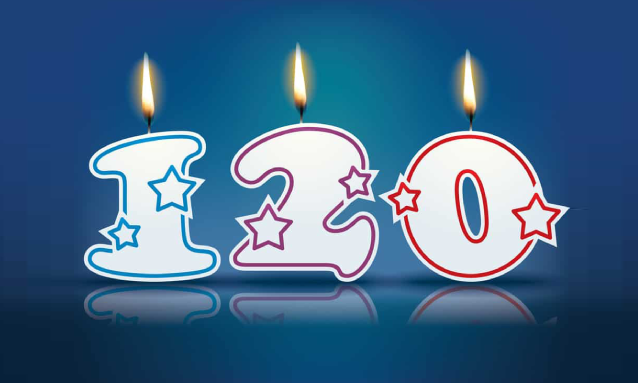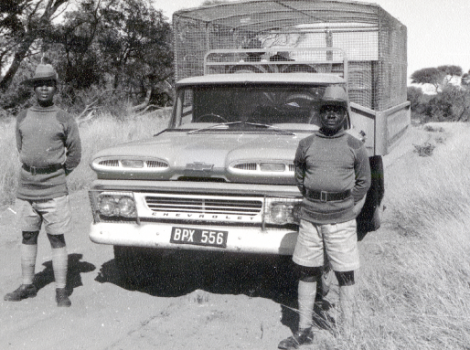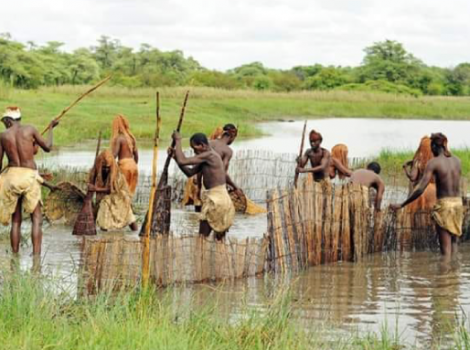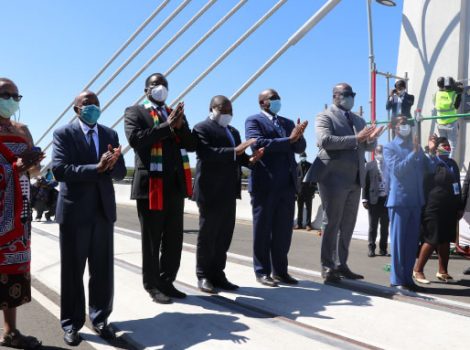
Yesterday Botswana’s second biggest city, Francistown celebrated 120 years! This will no doubt come as a big surprise to most, seeing as Botswana just celebrated 51 years of independence. To pay homage to the city, we share with you some facts you may not have been aware of about Francistown until now.
Francistown of old
The Southern African politics hub
In the 1960s, Francistown was the melting pot of Southern African politics. The nationalist Botswana Peoples Part-BPP, formed in 1960 on the platform of socialism and pan-Africanism, butted heads with the colonial regime over the government’s racial practices. It came to the attention of the BPP that the Tati Prospecting Company owned virtually all of Francistown’s land, while the local people were crammed into a very small amount of land.
As if that weren’t enough; to avoid competition, the same company, which ran a beer hall, with the support of the colonial administration prohibited Africans from brewing and selling beer. This led to incessant industrial strikes and boycotts, with the BPP demanding equal opportunities and racial equality for the locals. As a consequence, several BPP activists and leaders were thrown in jail.
Francistown – A friend of the regional freedom fighters
Over the years, Francistown played a major role in the liberation struggle of Southern Africa. Many nationalist leaders from the Zimbabwe African National Union-ZANU, Zimbabwe African People’s Union-ZAPU, South African National Congress -ANC, Pan-Africanist Congress-PAC, and the South West African People’s Organisation-SWAPO used Francistown as a transit route to their final destination as they were being exiled from their native countries or as a venue within which to convene and consult with their comrades.
Among the most notable political activists were former South African President, Thabo Mbeki, former Namibian President, Sam Nujoma, Namibian government Minister, Herman Toivo Ja Toivo, former Zimbabwean government Minister, Dumiso Dabengwa and the late John Mabunda of FRELIMO, Mozambique.
All these freedom fighters found willing hosts in the BPP leadership and individuals such as Meshack Mathumo, a qualified guerrilla fighter who had trained in Algeria under the auspices of the Zimbabwe African Peoples’ Union-ZAPU and became its clandestine representative in Botswana.
Modern day Francistown
Francistown is home to many government departments as well as big private companies. The city also has tertiary institutions as well as primary and secondary schools, hospitals, clinics and relatively reliable public transport.
Much like the rest of Botswana, the bright lights of Francistown however, belie a sluggish economy that fails to keep up with exceedingly high levels of unemployment. It doesn’t help matters that the mines in and around the city, including the Tati Nickel Mine, have crashed and burned.
For years, the people of Francistown have been crying out for the construction of a district hospital in Francistown, arguing that the Nyangabgwe Referral Hospital is not adequate. The clinics, schools and other amenities are not expanding fast enough to cope with the growing demand either. Francistown’s woes also include lack of adequate housing, shortage of serviced land, environmental pollution, crime and juvenile delinquency. Drivers continue to bemoan roads riddled with potholes. Taxi and bus operators could do with a proper taxi and bus station, while street vendors need a decent marketplace to display their wares. The youth are crying for recreational facilities.
Some Interesting Facts
Francistown started out as a mining town in the 19th century and with that came increasing employment opportunities, attracting countless recruits from rural Botswana. The discovery of diamonds in 1868 led to Francistown becoming the epicentre of Southern Africa’s first gold rush.
Francistown connects Botswana to countries such as Zambia, Congo-Brazzaville and the Democratic Republic of Congo through the Francistown-Kazungula road. The road is a critical artery to the economic wellbeing of Botswana, as it facilitates the transportation of, among others; salt from Sua Town to central African countries, bricks from South Africa to Zambia as well as copper concentrates from the Zambian Copperbelt to South Africa.
- Francistown’s traditional name is Nyangabgwe. The Kalanga word nyangagbwe, roughly translated means a rock.
- Named after colonial gold-digger, Daniel Francis, Francistown holds the distinction of having a colonial name. The town was founded in 1897; the same year that Cecil John Rhodes’ railroad, the Cape-to-Cairo railway line reached Monarch. Francis was one of the original directors of the Tati Company.
- Francistown, sometimes referred to as the ‘Capital of the North’, lies at the confluence of the Tati and Ntshe Rivers, and only 90km from the Botswana-Zimbabwe border to the north and about 500km from Gaborone
- Francistown was declared a city in 1997.
- A company called the Witwatersrand Native Labour Association-WNLA established itself in Francistown in 1936 to recruit miners from Angola, Botswana, Tanzania, Malawi and Zambia. The miners were processed in Francistown before being transported to various South African mines via train. Two trains travelling between Francistown and Johannesburg carried about 800 to 1,000 miners twice a week.
Items such as mirrors, playing cards, cigarettes and rock candy were used to encourage people to sign up.
At the time, Francistown consisted of only one street, parallel to the railway station and a few houses, mainly to the east of the railway line, housing the white colonial administrators.
There was only one row of shops owned mainly by Europeans and Indians. Now, Chinese own most of the retail shops. Racial discrimination defined Francistown during the colonial era, as there were certain areas such as the Tati Hotel, the Grand Hotel and the Francistown Club, which were the preserve of the Whites only.
- The city of Francistown was mainly sustained by the operations of the WNLA, which also built the original road to Kasane, Maun and Shakawe and brought the recruits by truck to Francistown.
- The Tati Nickel Mining Company contributed largely to the development of the city and its community. Its closure in 2016 heralded the challenge of unemployment in the city.
- Apart from the old Francistown airport, the native labour association built the Francistown club and operated an outdoor cinema for residents.
- Today, the city prides itself on having been the biggest commercial centre in Botswana prior to independence.
- Also touted as the City of All Things Precious or the City Of Gold, Francistown connects Botswana to Zimbabwe, through the A1 road, which has regrettably, not been as busy as it could be due to the collapse of the Zimbabwean economy.
- With three constituencies and 19 political wards, the population of Francistown has grown in leaps and bounds.
Activities to celebrate Francistown’s 120 years
Regarding the festivities planned to celebrate the city’s 120 years in existence, the Local Organising Committee Chairperson, who is also Business Botswana Northern Regional Manager, Kebaabetswe Bogatsu said;
“The main event will be held on Saturday and will be graced by local and regional dignitaries. It will be an event filled with entertainment from the renowned award-winning music star, Vee and other local entertainers. A football match will follow the ceremony featuring the Highlanders from Bulawayo, Zimbabwe and the local team, Tafic.”
Before the main event however, a carnival was planned for Friday as part of pre-celebrations. Last weekend the Francistown Local organising Committee hosted a motorcade around the city to hype up the locals ahead of the celebrations, to ensure that hordes of Francistowners would be part of the 120 years celebrations.
Happy 120 years, Francistown! And may all that you aspire to be come true.
References: Botswana Government Facebook page, MmegiOnline, Botswana Guardian



